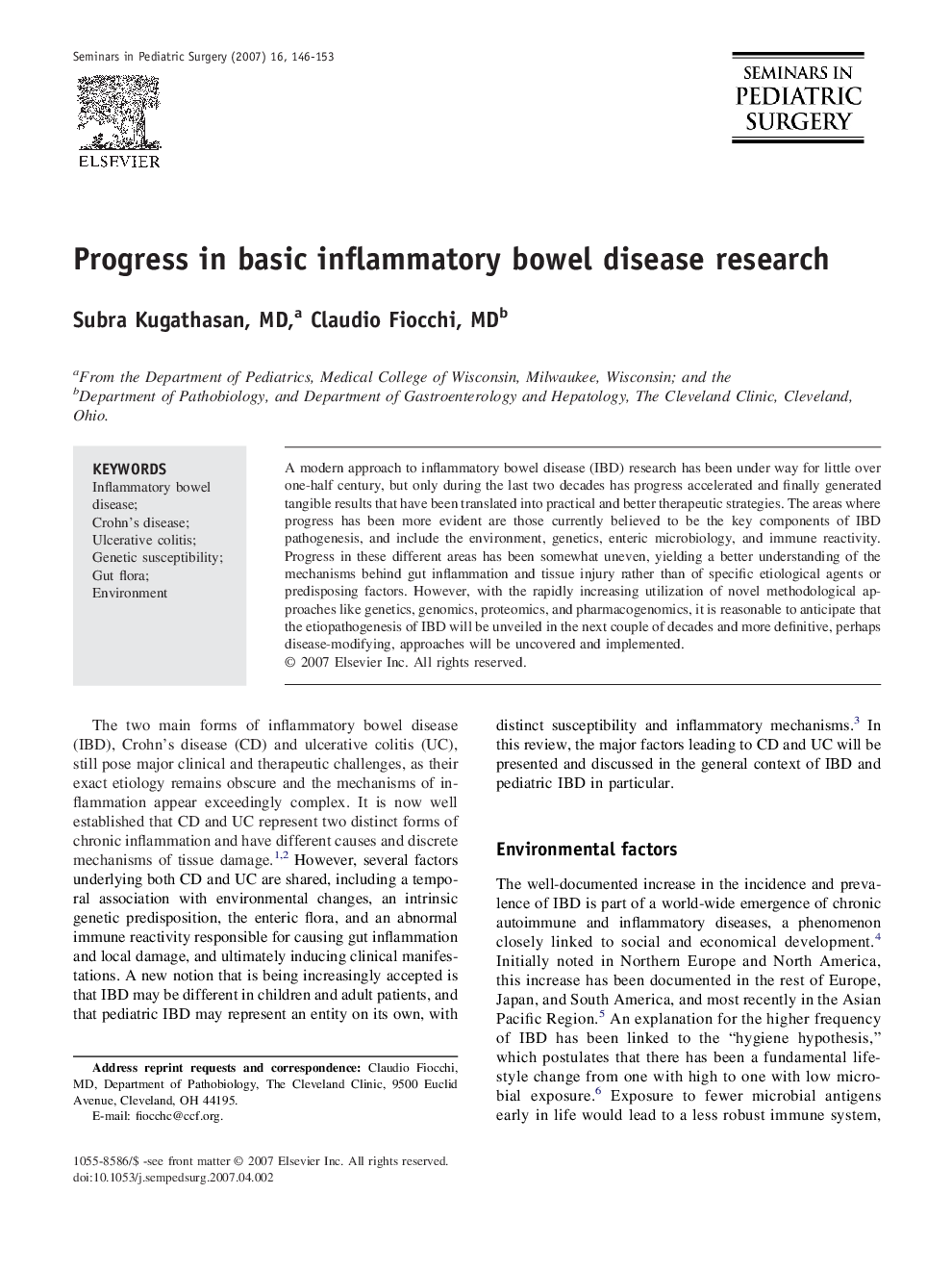| Article ID | Journal | Published Year | Pages | File Type |
|---|---|---|---|---|
| 4176892 | Seminars in Pediatric Surgery | 2007 | 8 Pages |
A modern approach to inflammatory bowel disease (IBD) research has been under way for little over one-half century, but only during the last two decades has progress accelerated and finally generated tangible results that have been translated into practical and better therapeutic strategies. The areas where progress has been more evident are those currently believed to be the key components of IBD pathogenesis, and include the environment, genetics, enteric microbiology, and immune reactivity. Progress in these different areas has been somewhat uneven, yielding a better understanding of the mechanisms behind gut inflammation and tissue injury rather than of specific etiological agents or predisposing factors. However, with the rapidly increasing utilization of novel methodological approaches like genetics, genomics, proteomics, and pharmacogenomics, it is reasonable to anticipate that the etiopathogenesis of IBD will be unveiled in the next couple of decades and more definitive, perhaps disease-modifying, approaches will be uncovered and implemented.
